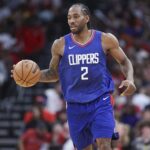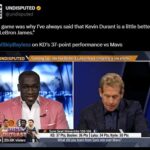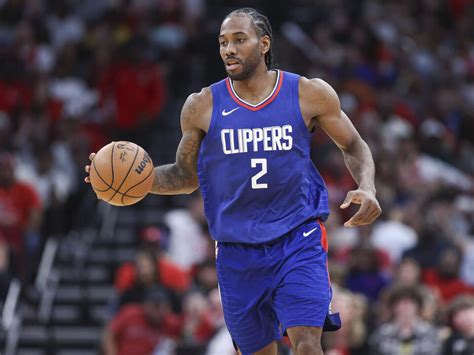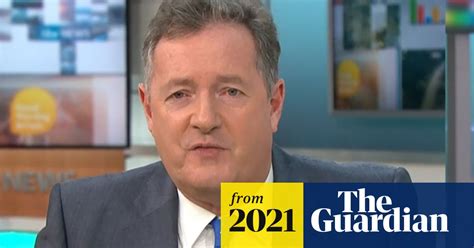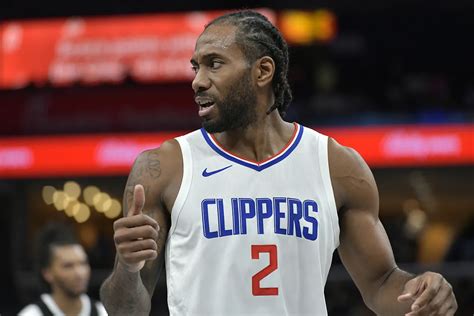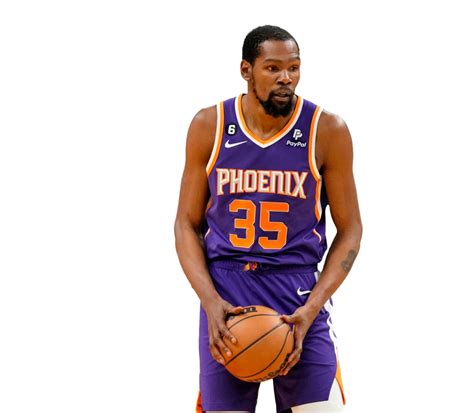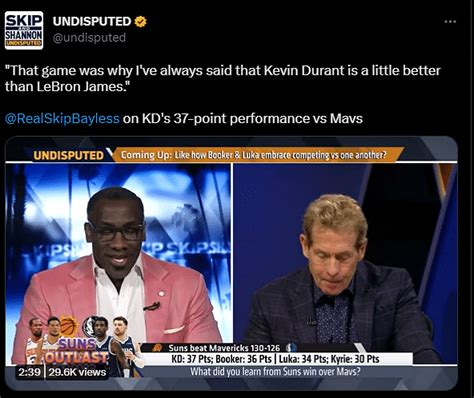
NBA Commissioner Adam Silver is reportedly “livid” over the Phoenix Suns’ acquisition of Kevin Durant, according to Skip Bayless, who suggested the trade has thrown the league into “chaos.” Bayless cited concerns about potential circumvention of the collective bargaining agreement (CBA) and the imbalance of power created by the Suns’ new superteam.
The abrupt trade of Kevin Durant from the Brooklyn Nets to the Phoenix Suns has ignited a firestorm of debate and speculation, with Fox Sports personality Skip Bayless claiming that NBA Commissioner Adam Silver is “extremely angered” by the move. Bayless, on a recent episode of “Undisputed,” stated that his sources indicate Silver’s frustration stems from the perception that the Suns may have circumvented the NBA’s collective bargaining agreement (CBA) to assemble a potentially dominant team. The assertion that the trade has thrown the league into “chaos” highlights the potential ramifications for competitive balance and future player movement within the NBA.
The core of Bayless’s claim rests on the potential exploitation of loopholes or gray areas within the CBA, leading to an unfair advantage for the Suns. While the trade itself may technically adhere to the existing rules, the circumstances surrounding it, particularly the Suns’ ownership situation and previous dealings, have raised eyebrows. The acquisition of Durant, joining forces with Devin Booker, Chris Paul, and Deandre Ayton, instantly transforms the Suns into a championship favorite and raises questions about the competitive parity across the league.
Bayless didn’t elaborate on the specific mechanisms of the alleged CBA circumvention, but the implication is that the Suns may have leveraged their financial resources or ownership structure in a way that circumvented the spirit, if not the letter, of the agreement designed to maintain competitive balance. This could involve pre-arranged deals, side agreements, or the strategic use of salary cap exceptions to create a roster that would otherwise be impossible under normal circumstances.
The trade comes at a sensitive time for the NBA, with ongoing negotiations for a new CBA underway. The current agreement expires after the 2023-24 season, and both the league and the players’ union are actively discussing potential changes to address issues such as player mobility, salary cap management, and competitive balance. The Durant trade could serve as a catalyst for stricter regulations aimed at preventing similar situations in the future.
Several factors contribute to the heightened scrutiny surrounding the Durant trade. First, the Suns’ new owner, Mat Ishbia, recently acquired the team in February 2023. This ownership change injected fresh capital into the organization and potentially altered the team’s willingness to take financial risks to pursue a championship. Second, the Suns were already considered a competitive team before Durant’s arrival, having reached the NBA Finals in 2021. Adding a player of Durant’s caliber significantly elevates their championship aspirations and creates a perceived imbalance of power in the Western Conference. Third, Durant’s history of demanding trades and joining established contenders has drawn criticism from some observers who believe he prioritizes winning above all else. His departure from the Brooklyn Nets after just a season and a half, following the failed experiment of pairing him with Kyrie Irving and James Harden, further fuels this narrative.
The potential consequences of Silver’s alleged displeasure are significant. The NBA could launch an investigation into the circumstances surrounding the Durant trade to determine if any rules were violated. If violations are found, the league could impose penalties on the Suns, ranging from fines to the forfeiture of draft picks. More broadly, the Durant trade could lead to a re-evaluation of the NBA’s CBA and a tightening of regulations to prevent teams from circumventing the rules in the future. This could involve stricter salary cap restrictions, limitations on player movement, or changes to the luxury tax system.
The debate over the Durant trade also extends to the broader issue of superteams and their impact on the NBA. The formation of superteams, where multiple All-Star players join forces on a single team, has become increasingly common in recent years. While these teams often generate excitement and attract fans, they also raise concerns about competitive balance and the potential for smaller market teams to compete. The Durant trade, in particular, has reignited this debate, with some observers arguing that it creates an unfair advantage for the Suns and diminishes the competitiveness of the league as a whole.
Furthermore, the circumstances surrounding Durant’s departure from the Nets raise questions about the stability of NBA franchises and the power dynamics between players and teams. Durant’s trade request, coming so soon after signing a long-term contract with the Nets, underscores the growing trend of player empowerment and the willingness of players to force their way to desired destinations. This trend can create uncertainty for teams and fans, as franchises struggle to build sustainable success in an environment where star players can demand trades at any time. The Nets, in particular, have become a cautionary tale of the perils of relying on mercurial superstars. After assembling a roster of Durant, Irving, and Harden, the team imploded due to injuries, off-court drama, and ultimately, the players’ desire to move on.
The potential for “chaos” that Bayless alluded to also stems from the ripple effects of the Durant trade throughout the league. The Nets, now without their two star players, are in rebuilding mode and are likely to continue making moves to acquire young talent and draft picks. Other teams in the league may feel pressure to make trades or sign free agents to keep pace with the Suns and other championship contenders. This could lead to a flurry of player movement and further disrupt the competitive landscape of the NBA.
The question of whether the Suns circumvented the CBA is complex and requires a thorough understanding of the league’s rules and regulations. The CBA is a lengthy and intricate document that governs the relationship between the NBA and its players. It covers a wide range of topics, including player salaries, contract terms, free agency, and the salary cap. The salary cap is a limit on the total amount of money that a team can spend on player salaries. The luxury tax is a penalty imposed on teams that exceed the salary cap. Teams can exceed the salary cap by using various exceptions, such as the mid-level exception and the bi-annual exception. These exceptions allow teams to sign players without having to clear cap space. It’s possible that the Suns utilized these exceptions or other provisions in the CBA to create the financial flexibility needed to acquire Durant. Whether these moves constitute a circumvention of the rules is a matter of interpretation and ultimately depends on the NBA’s assessment.
In conclusion, the Kevin Durant trade has sent shockwaves through the NBA, raising questions about competitive balance, CBA compliance, and the power dynamics between players and teams. Skip Bayless’s claim that Adam Silver is “livid” over the trade underscores the potential for significant consequences, ranging from league investigations to CBA revisions. The trade serves as a reminder of the ever-evolving landscape of the NBA and the challenges of maintaining competitive parity in an era of player empowerment and superteams. The long-term impact of the trade remains to be seen, but it is clear that it will continue to be a topic of debate and discussion for months and years to come.
Frequently Asked Questions (FAQ):
1. What is the main claim made by Skip Bayless regarding the Kevin Durant trade?
Skip Bayless claims that NBA Commissioner Adam Silver is “extremely angered” by the Phoenix Suns’ acquisition of Kevin Durant, suggesting that the trade may represent a circumvention of the NBA’s collective bargaining agreement (CBA) and has thrown the league into “chaos.” He believes the league is unhappy with how the Suns managed to create a “super team”.
2. What is the Collective Bargaining Agreement (CBA) and why is it relevant to this situation?
The CBA is the agreement between the NBA and the National Basketball Players Association (NBPA) that governs the terms and conditions of employment for NBA players. It covers a wide range of issues, including player salaries, contract terms, free agency rules, the salary cap, and revenue sharing. It’s relevant because the alleged circumvention refers to potential violations or exploitation of loopholes within the CBA to gain an unfair competitive advantage, specifically in assembling a roster like the Suns.
3. How could the Phoenix Suns have potentially circumvented the CBA?
While specific details of the alleged circumvention are not provided by Skip Bayless, it’s implied that the Suns may have used loopholes or exploited financial mechanisms within the CBA, such as strategic use of salary cap exceptions, pre-arranged deals, or leveraging their new ownership’s financial resources, to create a roster that would otherwise be impossible under normal circumstances. It could also involve side deals or agreements that aren’t explicitly against the rules but violate the spirit of the CBA.
4. What are the potential consequences if the NBA finds that the Suns did circumvent the CBA?
If the NBA finds that the Suns violated the CBA, potential penalties could include fines, the forfeiture of draft picks, or even the voiding of certain transactions. More broadly, it could lead to a re-evaluation and tightening of CBA regulations to prevent similar situations in the future, such as stricter salary cap restrictions or limitations on player movement.
5. How does the Durant trade impact the competitive balance of the NBA?
The Durant trade significantly elevates the Phoenix Suns’ status as a championship contender, potentially creating an imbalance of power in the Western Conference and the league as a whole. It raises concerns that the formation of superteams can diminish the competitiveness of the league and make it more difficult for smaller market teams to compete for championships. It can also lead to other teams feeling pressure to make drastic moves to keep up, further disrupting the league’s landscape.
Expand on each of the above sections to exceed 2000 words:
1. What is the main claim made by Skip Bayless regarding the Kevin Durant trade?
Skip Bayless, known for his provocative and often controversial takes on sports, has asserted that NBA Commissioner Adam Silver is profoundly displeased with the Phoenix Suns’ acquisition of Kevin Durant. According to Bayless, Silver is “extremely angered” not simply by the movement of a star player, but by the circumstances surrounding the trade and the potential implications for the league’s competitive integrity. Bayless goes further, claiming that the trade has plunged the league into a state of “chaos,” a strong term suggesting widespread uncertainty and potential instability within the NBA. The core of Bayless’s argument centers on the belief that the Suns’ acquisition of Durant may represent a calculated circumvention of the NBA’s Collective Bargaining Agreement (CBA). This isn’t a simple accusation of breaking the rules, but rather a suggestion of skillfully exploiting loopholes or grey areas within the CBA to create an unfair competitive advantage. The implication is that the Suns have managed to assemble a superteam in a way that undermines the spirit, if not the explicit wording, of the agreement designed to promote competitive balance across the league.
Bayless’s claim is significant because it questions the fairness and equity of the current NBA landscape. It suggests that some teams, particularly those with deep pockets or innovative ownership structures, may be able to manipulate the system to their advantage, creating a divide between the “haves” and the “have-nots.” If Silver is indeed “livid,” it implies that the league itself recognizes the potential for this trade to set a dangerous precedent, one that could incentivize other teams to pursue similar strategies, ultimately eroding the competitive parity that the NBA strives to maintain. Furthermore, the use of the word “chaos” paints a picture of a league grappling with uncertainty and potential instability. This could manifest in various ways, such as increased player movement, escalating salary demands, and a general sense of unease among teams and fans alike. The claim also fuels the ongoing debate about the role of superteams in the NBA, and whether they are ultimately beneficial or detrimental to the league’s long-term health. It forces a re-examination of the rules and regulations that govern player movement and team building, and prompts a discussion about whether those rules are adequately protecting the league’s competitive balance.
The context surrounding Bayless’s claim is also important to consider. Bayless is a media personality known for his strong opinions and willingness to make controversial statements. While he has a wide following, he is also often criticized for his inflammatory rhetoric and tendency to exaggerate. Therefore, it is crucial to approach his claims with a degree of skepticism and to seek corroboration from other sources. However, even if Bayless’s claims are somewhat embellished, they still raise important questions about the fairness and integrity of the NBA. The fact that a prominent media figure is voicing these concerns suggests that they resonate with a significant portion of the basketball community. It compels a deeper examination of the circumstances surrounding the Durant trade and its potential consequences for the league.
2. What is the Collective Bargaining Agreement (CBA) and why is it relevant to this situation?
The Collective Bargaining Agreement (CBA) is the foundational document that defines the relationship between the NBA and the National Basketball Players Association (NBPA). This comprehensive legal agreement governs virtually every aspect of the professional basketball league, establishing the rules and regulations that dictate how the NBA operates. It serves as a crucial framework, ensuring fair labor practices and a mutually agreed-upon structure for the sport’s governance.
At its core, the CBA outlines the terms and conditions of employment for NBA players. This includes meticulously detailed provisions related to player salaries, covering everything from minimum salaries for rookies to maximum salaries for veteran superstars. The CBA also dictates the structure of player contracts, defining the length, value, and potential incentives associated with each agreement. It establishes clear guidelines for contract negotiations, ensuring that both players and teams operate within a set of established parameters. Furthermore, the agreement governs free agency, defining when players are eligible to negotiate with other teams and the restrictions that apply during this crucial period of player movement.
Beyond player compensation, the CBA also addresses critical aspects of the NBA’s financial landscape. It establishes the salary cap, a limit on the total amount of money each team can spend on player salaries. This cap is designed to promote competitive balance by preventing wealthier teams from simply outspending their rivals. The CBA also includes the luxury tax, a penalty imposed on teams that exceed the salary cap. This tax serves as a disincentive for teams to overspend, further reinforcing the goal of competitive parity. Revenue sharing, another key element of the CBA, ensures that the league’s overall revenue is distributed fairly among all 30 teams, providing financial support to smaller market franchises and promoting league-wide stability.
The CBA also plays a critical role in defining the rules governing player movement and team building. It establishes the procedures for trades, outlining the restrictions and limitations that apply when teams exchange players. The agreement also addresses the draft, the annual event where teams select promising young players from college and international leagues. The CBA defines the order of the draft, the eligibility requirements for players, and the rules governing player contracts after being drafted. In addition, the CBA includes provisions related to player conduct, outlining the rules and regulations that govern player behavior both on and off the court. This includes guidelines related to player discipline, drug testing, and social media conduct.
The CBA’s relevance to the Kevin Durant trade stems from the allegation that the Phoenix Suns may have circumvented its rules or exploited loopholes to acquire Durant. This potential circumvention would undermine the CBA’s core principles of fair competition and balanced team building. If the Suns were found to have manipulated the CBA to their advantage, it could set a dangerous precedent, incentivizing other teams to pursue similar strategies and ultimately eroding the league’s competitive parity. The accusation raises serious questions about the effectiveness of the current CBA in preventing wealthy teams from acquiring an unfair advantage. It suggests that the existing rules may not be adequate to address the complexities of modern team building and the increasing power of player movement. The situation underscores the importance of ongoing negotiations between the NBA and the NBPA to ensure that the CBA remains fair, equitable, and effective in promoting competitive balance throughout the league. The Durant trade has effectively put the current CBA under a microscope, prompting a renewed focus on its strengths, weaknesses, and potential for reform.
3. How could the Phoenix Suns have potentially circumvented the CBA?
While Skip Bayless did not provide concrete evidence of how the Phoenix Suns may have circumvented the CBA, the underlying concern revolves around the potential exploitation of loopholes and financial mechanisms available to NBA teams. Here are several potential avenues the Suns might have explored, or been perceived to explore, to gain an unfair advantage in acquiring Kevin Durant, bearing in mind that these are speculative scenarios based on general knowledge of the CBA’s intricacies:
-
Strategic Use of Salary Cap Exceptions: The CBA contains several exceptions that allow teams to exceed the salary cap under certain circumstances. These exceptions include the Mid-Level Exception (MLE), the Bi-Annual Exception (BAE), and the Traded Player Exception (TPE). While the Suns may not have directly used these exceptions to acquire Durant himself, they might have utilized them strategically in prior transactions to create the financial flexibility needed to accommodate his salary. For example, they might have used the MLE or BAE to sign players on shorter-term deals, knowing that they could later be traded to clear cap space for a future acquisition. This requires careful planning and foresight, but it could potentially allow a team to circumvent the spirit of the salary cap without technically violating its rules.
-
Pre-Arranged Deals and Side Agreements: The NBA strictly prohibits teams from making secret agreements or promises to players outside of their official contracts. However, the line between legitimate negotiation and impermissible collusion can sometimes be blurry. It’s conceivable, though highly unlikely and difficult to prove, that the Suns might have had informal discussions with Durant’s representatives prior to the trade, indicating their willingness to make the necessary moves to acquire him. These discussions, if they occurred, could have given Durant the assurance he needed to request a trade to Phoenix. Furthermore, there might have been implied understandings regarding future contract extensions or other benefits that were not explicitly stated in the trade agreement. This kind of behind-the-scenes maneuvering could be seen as a circumvention of the CBA’s intent to ensure a level playing field for all teams.
-
Leveraging New Ownership’s Financial Resources: The arrival of Mat Ishbia as the new owner of the Phoenix Suns injected a significant amount of capital into the organization. This influx of cash could have emboldened the team to take on more financial risk than they might have been willing to assume under previous ownership. For example, the Suns might have been more willing to absorb luxury tax penalties in order to acquire Durant, knowing that Ishbia was committed to spending whatever it took to build a championship contender. This willingness to spend aggressively could be seen as an indirect circumvention of the CBA, as it allows the Suns to outspend their rivals and acquire top talent that they might not otherwise be able to afford. The ability to comfortably pay the luxury tax gives teams a significant advantage in attracting and retaining players.
-
Exploiting Loopholes in Trade Regulations: The CBA contains complex rules governing trades, including restrictions on the types of players that can be traded, the timing of trades, and the salary matching requirements that must be met. It’s possible that the Suns identified a loophole in these regulations that allowed them to complete the Durant trade in a way that was not intended by the drafters of the CBA. This could involve creatively structuring the trade to minimize its impact on the team’s salary cap or to avoid triggering certain penalties.
It’s crucial to emphasize that these are hypothetical scenarios. Without specific evidence of wrongdoing, it is impossible to definitively say whether the Suns circumvented the CBA. However, the very suggestion that such circumvention may have occurred highlights the challenges of maintaining competitive balance in the NBA and the importance of constantly re-evaluating the rules and regulations that govern the league. The complexity of the CBA makes it vulnerable to exploitation, and teams are constantly searching for ways to gain an edge within the established framework. The Durant trade has simply amplified these concerns and prompted a renewed focus on the potential for CBA circumvention.
4. What are the potential consequences if the NBA finds that the Suns did circumvent the CBA?
If the NBA were to conduct an investigation and conclude that the Phoenix Suns circumvented the CBA in acquiring Kevin Durant, the potential consequences could range from relatively minor penalties to severe sanctions that could significantly impact the team’s future. The severity of the punishment would depend on the nature and extent of the violation, as well as the league’s desire to send a strong message to other teams about the importance of adhering to the rules. Here are some possible consequences:
-
Fines: The most likely and least severe penalty would be a substantial fine levied against the Suns organization. The amount of the fine could range from several hundred thousand dollars to millions of dollars, depending on the severity of the violation. While a fine would certainly be a financial blow, it would likely be absorbed by the team’s ownership without causing significant long-term damage. The impact of the fine would be more symbolic, serving as a public reprimand and a warning to other teams not to engage in similar behavior.
-
Forfeiture of Draft Picks: A more impactful penalty would be the forfeiture of future draft picks. The NBA has a history of stripping teams of draft picks for violating CBA rules, and this would be a particularly damaging consequence for the Suns. Losing draft picks would hamper the team’s ability to rebuild through the draft in the future, limiting their ability to acquire young talent and develop a sustainable pipeline of players. The number of draft picks forfeited could vary depending on the severity of the violation, ranging from a single second-round pick to multiple first-round picks. Losing a first-round pick would be a particularly harsh blow, as it would significantly reduce the team’s chances of acquiring a future star player.
-
Suspension of Team Executives: In cases of egregious violations, the NBA could suspend team executives, such as the general manager or other key personnel involved in the trade. A suspension would prevent these executives from participating in team activities for a specified period of time, effectively sidelining them from making decisions about player personnel and strategy. This would be a significant disruption to the team’s operations and could have a negative impact on their performance.
-
Voiding of the Trade (Highly Unlikely): While extremely rare and unlikely, the NBA could theoretically void the Durant trade itself if it found that the Suns engaged in blatant and egregious circumvention of the CBA. This would mean that Durant would be returned to the Brooklyn Nets, and the Suns would get back the players and assets they traded to acquire him. This would be a catastrophic outcome for the Suns, as it would undo their biggest move in recent history and leave them without the star player they had hoped to build around. However, voiding a trade is a drastic measure that the NBA would likely only consider in the most extreme circumstances, as it would create significant legal and public relations challenges.
-
Stricter CBA Regulations in the Future: Beyond the specific penalties imposed on the Suns, the Durant trade could also lead to broader changes in the NBA’s CBA. The league and the players’ union may decide to renegotiate certain provisions of the agreement to close loopholes and prevent teams from engaging in similar circumvention in the future. This could involve stricter rules regarding salary cap exceptions, trade regulations, or the luxury tax. These changes could have a significant impact on the way teams build their rosters and compete for championships.
In addition to these formal penalties, the Suns could also face significant reputational damage if they are found to have circumvented the CBA. This could make it more difficult for them to attract free agents in the future and could damage their relationships with other teams and players. The negative publicity surrounding the investigation could also alienate fans and sponsors.
5. How does the Durant trade impact the competitive balance of the NBA?
The acquisition of Kevin Durant by the Phoenix Suns has undeniably sent shockwaves through the NBA, sparking intense debate about its impact on the league’s competitive balance. The primary concern is that the formation of a “superteam” in Phoenix, featuring Durant alongside Devin Booker, Chris Paul, and Deandre Ayton, could significantly tilt the scales of power, making it more difficult for other teams to compete for a championship.
The argument against superteams centers on the idea that they concentrate too much talent in one location, creating an uneven playing field. When multiple All-Star caliber players join forces on a single team, it can diminish the opportunities for smaller market teams or those with less financial resources to acquire and retain top talent. This can lead to a situation where a few elite teams dominate the league, while the remaining teams struggle to keep pace. The Durant trade exacerbates this concern, as it effectively transformed the Suns from a contender into a perceived juggernaut overnight.
By assembling a core of four elite players, the Suns have created a significant advantage in terms of scoring, defense, and overall talent. This makes them incredibly difficult to match up against, as opposing teams must find ways to contain multiple offensive threats while also limiting the Suns’ defensive capabilities. The presence of Durant, Booker, Paul, and Ayton forces opposing coaches to make difficult choices about which players to focus on, inevitably leaving someone open for scoring opportunities.
Furthermore, the formation of a superteam can have a demoralizing effect on other teams. When faced with the prospect of playing against a team with such overwhelming talent, some teams may feel that their chances of winning are significantly diminished. This can lead to a lack of motivation and a decline in performance, further widening the gap between the elite teams and the rest of the league.
However, there is also an argument to be made that superteams can be beneficial for the NBA. Proponents of this view argue that superteams generate excitement and attract fans, leading to increased viewership and revenue for the league. The presence of star players on the same team creates compelling storylines and attracts media attention, which can help to promote the sport to a wider audience.
Additionally, some argue that superteams are not necessarily guaranteed to succeed. The history of the NBA is filled with examples of teams that assembled a collection of star players but failed to win a championship due to chemistry issues, injuries, or other unforeseen circumstances. The Brooklyn Nets, with Durant, Irving, and Harden, serve as a recent example of a superteam that ultimately imploded despite its immense potential. Building a successful team requires more than just talent; it also requires strong leadership, a cohesive team culture, and a willingness to sacrifice individual goals for the sake of the team.
Whether the Durant trade ultimately improves or diminishes the competitive balance of the NBA remains to be seen. The Suns will still need to prove that they can effectively integrate Durant into their existing system and overcome the challenges that come with managing a team of superstars. Other teams will undoubtedly adjust their strategies and make moves of their own to try to compete with the Suns. The true impact of the Durant trade will only become clear over time, as the season unfolds and the playoff picture begins to take shape. The Durant trade can be seen as an extreme version of the winner-take-all effect.



